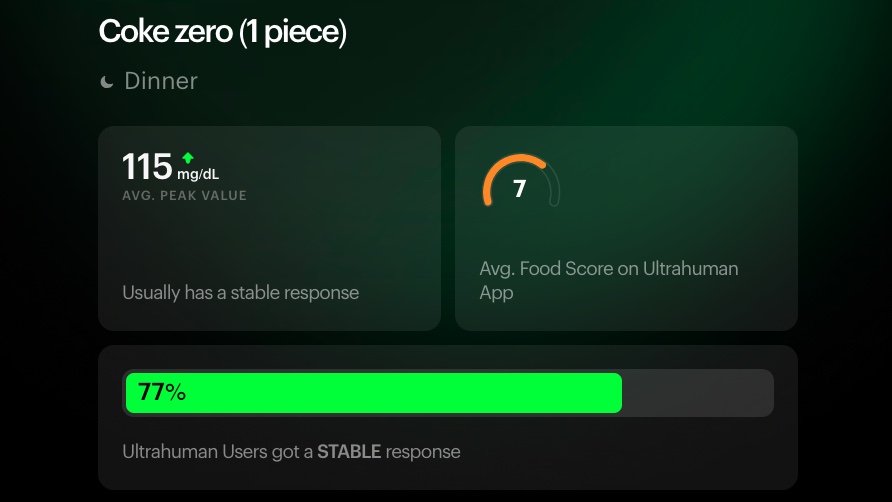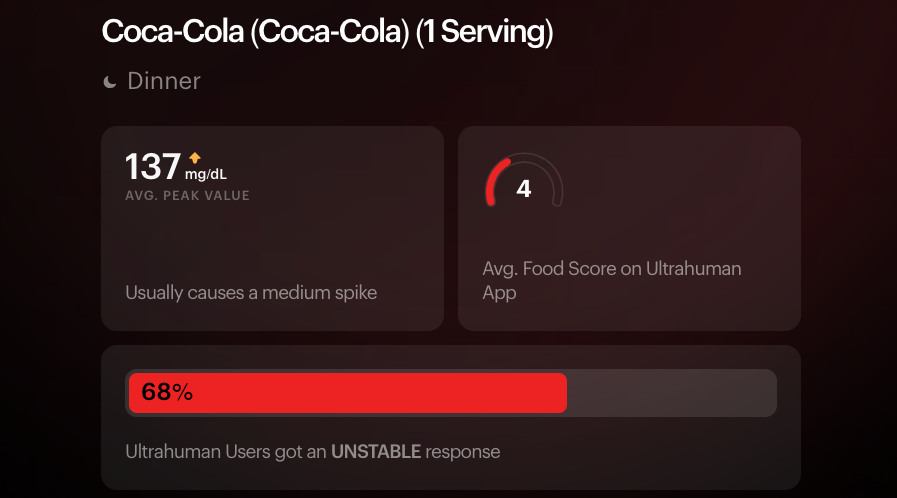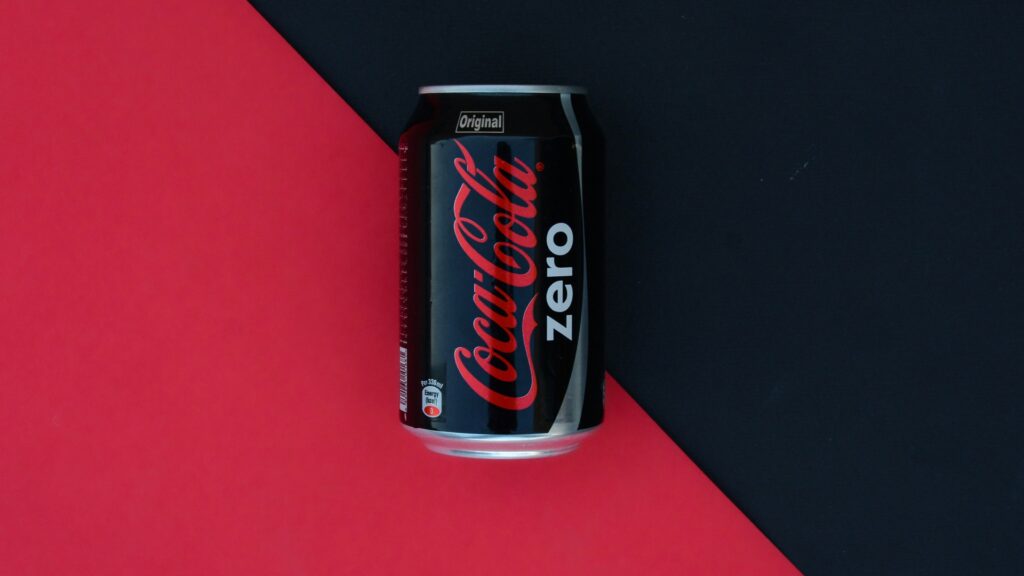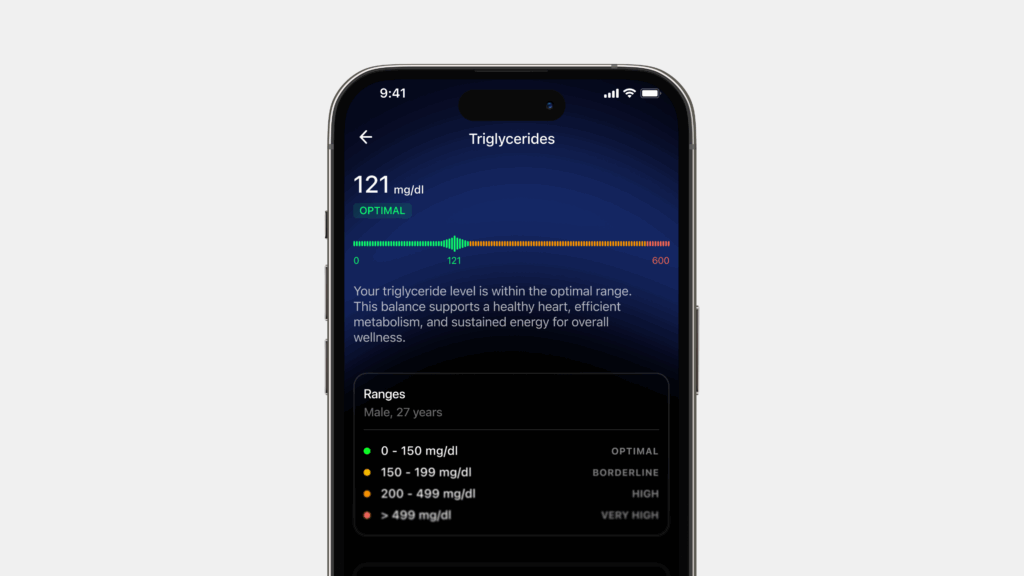Coke Zero is a sugar-free soda marketed as a healthier alternative to regular Coca‑Cola – and it’s designed to have fewer calories and not to raise blood glucose levels.
It uses artificial sweeteners — primarily aspartame and acesulfame potassium (Ace‑K) — to mimic the taste of the original Coca-Cola. These sweeteners contain no calories and don’t produce a glycemic spike as sugar.
But how do they affect blood sugar levels, and are there any metabolic consequences?
We explain the science and use Ultrahuman’s Open Glucose Database to find out.
Highlights:
- Coke Zero does not produce the same rise as Coca-Cola.
- 77% of users produced a stable glucose response after drinking Coke Zero.
- Caffeine could cause some individuals to experience increased glucose response.
Impact of Coke Zero on blood sugar

We consulted the Ultrahuman OGDb – the world’s largest open-source glucose response database built from continuous glucose monitor (CGM) data and food logs.
From responses from Ultrahuman M1 CGM users, 77% experienced a stable blood sugar response from drinking Coke Zero and didn’t see a rise of more than 5mg/dL. It’s important to remember that some users may mislabel some foods, so the real score could be higher still. You can see the score data here.
Since Coke Zero contains no actual sugar, it does not directly raise blood glucose levels like regular soft drinks. You can see how standard Coca-Cola affects blood glucose levels below:

The caffeine factor
Artificial sweeteners, unlike sugar, don’t break down into glucose during digestion. However, their impact on insulin response is more complex.
- Aspartame: While aspartame itself does not raise blood sugar, some research suggests it might influence insulin secretion by interacting with gut receptors. However, findings on this are inconsistent.
- Acesulfame Potassium (Ace‑K): Some studies indicate that Ace‑K can stimulate insulin release, even in the absence of carbohydrates, but more human studies are needed to confirm this effect.
- Caffeine Factor: Coke Zero contains caffeine, which can temporarily increase blood sugar levels in some individuals by triggering the release of stress hormones like cortisol and adrenaline. However, this response varies based on individual tolerance and metabolic health.
Conclusion
For most people, consuming Coke Zero in moderation is unlikely to cause significant blood sugar spikes. However, individual responses may vary, particularly for those with insulin resistance or diabetes. That’s borne out in Ultrahuman M1 user data.
Additionally, some studies suggest that regular consumption of artificial sweeteners could alter gut microbiota and influence glucose metabolism over time, though definitive conclusions are still being researched.
While Coke Zero does not directly raise blood sugar levels, its long‑term metabolic effects are still being studied.
If you’re managing blood sugar levels, occasional consumption is unlikely to be harmful, but relying on artificially sweetened beverages as a daily habit may have unintended metabolic consequences.
As always, it’s best to focus on whole, minimally processed foods and beverages for optimal metabolic health.








